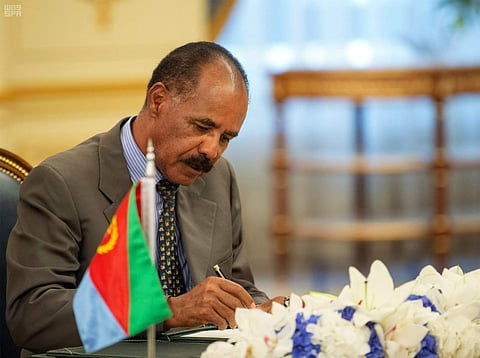

KAMPALA: Eritrea has arrested a former minister who wrote books critical of the country's leader, a rights group and a UN official said.
British-based rights body Human Rights Concern - Eritrea (HRCE) said Berhane Abrehe, minister from 2000 to 2012, was arrested on Monday morning in the capital Asmara.
HRCE said Abrehe had in two books "detailed how the president of the country is responsible for suffering of the Eritrean people and called upon the Eritrean youth to rise up for democratic change".
President Isaias Afwerki has led Eritrea since independence from Ethiopia in 1991. He has won international plaudits in the past weeks for agreeing to put aside two decades of hostility with arch-foe Ethiopia and restore relations.
The Eritrean information minister could not be immediately reached for comment about the arrest.
It was not possible to contact Abrehe or a lawyer representing him. Neither HRCE nor Sheila B Keetharuth, UN Special Rapporteur on human rights in Eritrea, specified the charges he was facing or what had triggered his arrest.
But Keetharuth criticised the detention which she said meant "improvements in Eritrea's external relations are not mirrored inside, especially regarding respect for fundamental rights and freedoms".
"People imprisoned in Eritrea, some for excessively long periods and others arrested more recently, should be brought before the courts of law as a matter of urgency," she said.
The United Nations has previously accused officials in the Horn of Africa country of crimes against humanity including torture, rape, murder and enslaving hundreds of thousands of people.
In 2016, when the allegations were made, the government rejected them and said they were an attempt to harass the country.
The rapprochement with Ethiopia followed its prime minister Abiy Ahmed's move to accept an international ruling on the two countries' disputed border that sparked war in 1998.
In the two decades that followed both countries were dominated by their militaries and a constant security obsession meant criticism and political opposition was suppressed.